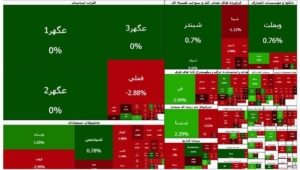سرعت چرخش زمین به دور خودش به طرز عجیبی افزایش پیدا کرده!

زمین، سیارهای که همیشه با ریتمی آرام و قابل پیشبینی میچرخید، حالا به طرز شگفتانگیزی سرعت گرفته است! برای اولین بار در تاریخ ثبتشده، طول یک روز کمتر از ۲۴ ساعت شده و رکوردهای عجیبی در حال شکسته شدن هستند. در برخی روزهای اخیر، چرخش زمین بهاندازهای سریع بوده که روزها بیش از ۱.۶ میلیثانیه کوتاهتر شدهاند. این تغییر ظریف اما خارقالعاده، دانشمندان را حیرتزده کرده و نشان میدهد که سیاره ما پویاتر و زندهتر از آن چیزی است که تصور میکردیم.
اما چرا چنین اتفاقی افتاده است؟ پاسخ هنوز قطعی نیست، اما نشانهها به مجموعهای از عوامل پیچیده اشاره دارند. جابهجایی تودههای یخ قطبی، جریانهای سریع اقیانوسی، حرکات غیرعادی در هستهی مذاب زمین و حتی نوسانات قطبها، همگی ممکن است به این شتاب ناگهانی کمک کرده باشند. این یعنی زمین، نهتنها تحت تأثیر تغییرات سطحی و اقلیمی قرار دارد، بلکه در عمق خود نیز دستخوش تغییراتی شگرف شده است—و همه اینها دست به دست هم دادهاند تا ساعت طبیعی ما از تعادل خارج شود.
اگر این روند ادامه پیدا کند، بشر برای اولین بار مجبور خواهد شد یک “ثانیه کبیسه منفی” را از ساعت جهانی حذف کند—اتفاقی بیسابقه در تاریخ! برای فناوریهایی که به دقت میلیثانیهای وابستهاند، مانند GPS، بازارهای مالی و سامانههای اینترنتی، این تغییر میتواند چالشهای بیسابقهای ایجاد کند. جهان در حال تماشای لحظهای است که حتی زمان، دیگر همان زمان همیشگی نیست—و این چیزی است که هم علمیست، هم عجیب، و هم هیجانانگیز.

منبع خبر: dailygalaxy
Earth is spinning faster than ever, and the result is a shortening of the length of our days. Since 2020, each year has brought records for the shortest day ever, with Earth’s spin accelerating by milliseconds. As we approach mid-2025, experts are predicting that Earth’s rotation could once again break records. In fact, some forecasts suggest that Earth will soon experience its fastest-ever rotation, bringing us even closer to the shortest day since records began in 1973.
The Race Against Time
Normally, Earth takes 24 hours—or exactly 86,400 seconds—to complete one full rotation. This has been the standard for measuring time for centuries, but recent data shows that the planet has been rotating faster than ever before. On July 19, 2020, Earth set a new milestone by completing its daily rotation 1.47 milliseconds shorter than 86,400 seconds. This wasn’t a one-off event; the trend has continued since then. Just one year later, on July 5, 2021, the planet’s spin was even quicker, shortening the day by 1.66 milliseconds.
Experts, including those from Timeanddate.com and the International Earth Rotation and Reference Systems Service (IERS), suggest that Earth could set another record on or around July 9, July 22, or August 5, 2025. This marks a continued acceleration in the planet’s rotation, though the exact timing remains uncertain.
Why Earth Is Spinning Faster?
The exact cause of Earth’s increasing rotation speed remains a mystery, though scientists have several theories. A combination of factors is likely responsible for this acceleration. Changes in the movement of Earth’s core, shifts in mass due to the melting of glaciers, and variations in ocean currents are all potential contributors. Also, the “Chandler wobble,” the slow movement of Earth’s geographic poles, may also be influencing the planet’s spin.
For context, Earth’s rotation has been gradually slowing for centuries. However, the recent trend in acceleration is perplexing to researchers. The melting of large ice sheets and glaciers, for example, has redistributed mass on the planet, potentially altering the rate at which Earth rotates. Scientists believe this could lead to slight variations in the length of each day, with these changes being small but measurable on atomic clocks.
Leap Seconds: A Growing Dilemma
Leap seconds, those occasional additions or subtractions to our clocks to account for irregularities in Earth’s rotation, have been a long-standing solution to maintain time accuracy. Traditionally, when Earth’s rotation slowed, timekeepers added a leap second to the official time. But now, with Earth speeding up, the situation is becoming more complicated.
In fact, for the first time in decades, the IERS confirmed earlier in 2025 that no leap second would be added this year. While the most recent leap second occurred in 2016, the idea of negative leap seconds—where a second is subtracted instead of added—is now on the table. Experts are still debating this possibility. If the acceleration in Earth’s rotation continues, future timekeeping may involve removing seconds from our clocks to keep up with the planet’s faster spin.
The Global Impact of Faster Spins
While the changes in Earth’s rotation might seem trivial at first glance, they have significant implications for modern life. Precise timekeeping is crucial for technologies such as GPS and satellite navigation. These systems rely on accurate synchronization to ensure everything from navigation services to financial transactions work smoothly.
The acceleration of Earth’s spin could also have a profound effect on global networks, which depend on precise timekeeping for everything from stock exchanges to communications. As the planet’s rotation continues to fluctuate, timekeepers will need to adjust their methods to maintain alignment between atomic time and the natural world. The challenge now lies in determining how best to handle this increasing unpredictability, especially as it remains unclear whether the recent acceleration will last.







نظر شما در مورد این مطلب چیه؟